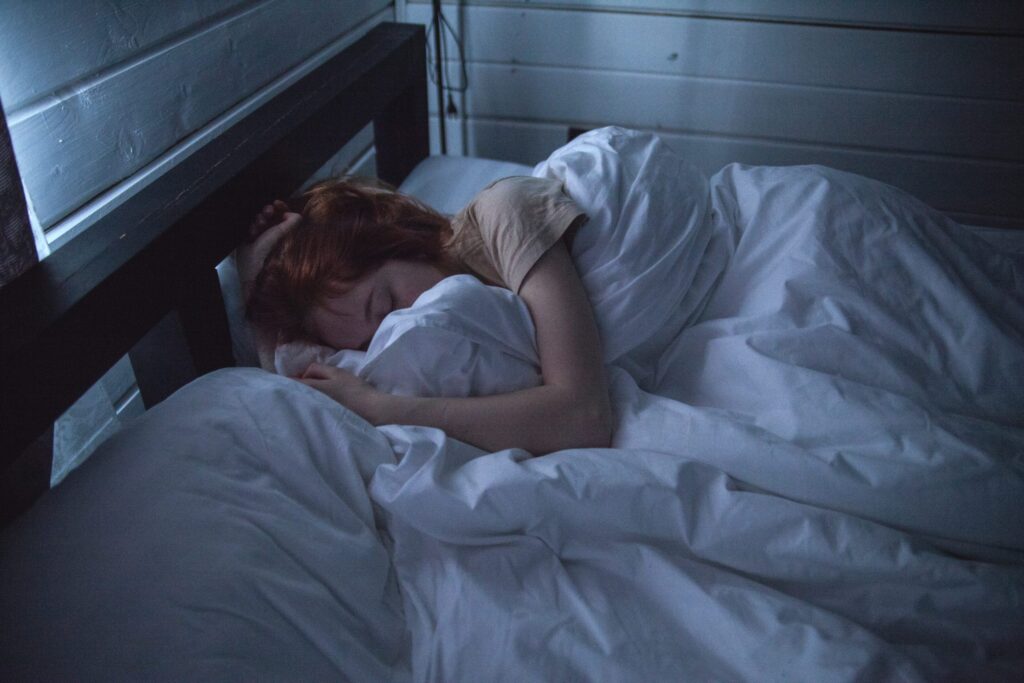Your shopping cart is empty.
Browse our collection or make an appointment.

Experts talk about what's going on physically and mentally when you experience sleep deprivation.
Most people have pulled an all-nighter at least once in their lives. Sometimes because they had to meet a test or a deadline for work, and sometimes because they were partying into the early hours.
Spending at least 24 hours without sleep, also known as total sleep deprivation, naturally causes you to feel unwell the next day.
The physical and mental effects are quite striking.
HuffPost spoke with sleep experts to find out exactly what happens to your body and mind when you stay up all night.
You fight against your body's natural urge to go to sleep.
To get through an entire night, you have to fight against the body's natural urge to want to sleep by "avoiding factors that promote staying awake" and "factors that fuel sleep," said Roy Raymann, the vice president of sleep science and scientific affairs at Carlsbad, California-based SleepScore Laboratory.
"Factors that promote staying awake include caffeine, a colder environment, a well-lit room with lots of blue light and standing," he said, adding that factors that fuel sleep include a dark environment, a warm comfortable temperature, lying down and closing your eyes.
When you skip a full night, your body has missed a much-needed opportunity to relax, recharge and recover.
"During the night, all kinds of repair processes get you back in shape for the next day," Raymann said. "Cells and tissues are repaired, toxins are removed from your brain, memories and emotions are processed and stored, and the fatigue you built up during the day is reduced."
An all-nighter or limited amount of sleep means that this recovery process does not take place or is not carried out to its fullest extent, leaving you feeling unrefreshed.
"Cognitive performance decreases and mood can suffer," said Nate Watson, codirector of the University of Washington Medicine Sleep Center and a consultant to SleepScore Labs. "The lymphatic system, which removes the byproducts of a day's activity from the brain, is unable to perform its function."
"When you're not getting sleep, you're acting on stress hormones like adrenaline and cortisol, which raises stress levels," said Jon Caulfield, a dentist in Littleton, Colorado, who focuses on respiratory, sleep and TMJ disorders and is a board member and national instructor with the American Sleep and Breathing Academy.
"Sleep loss can lead to stress and anxiety," said Terry Cralle, a registered nurse and certified clinical sleep educator from the Washington, D.C., area, who serves as a spokesperson for the Better Sleep Council. Cralle cited a recent study by the University of California, Berkeley, which stated that a sleepless night can increase anxiety levels by 30 percent.
This can be a vicious cycle: Stress and anxiety often cause people to have trouble sleeping, but then sleep deprivation increases stress and anxiety levels. And so you stay busy.
"It's argued that even if you're only sleep deprived for one night, the microstructures in your brain can change," Raymann said. "There is also more evidence now that you get brainwashing at night to remove all the waste and toxins that have accumulated in your brain during the day. Both changes - microstructure and no brainwashing - lead to decreased communication between your brain cells."
This decreased communication between brain cells impairs your ability to focus or work at optimal levels. A 2007 study from St. Lawrence University in Canton, New York, found that an all-nighter was associated with lower average grades.
"Sleep deprivation affects your prefrontal cortex, which affects your cognitive abilities. Think of it as weakening," says Cralle.
Many experts have even compared sleep deprivation to drunkenness, which is why driving is so dangerous when you're sleepy.
"In addition to a lack of focus, what many people call brain fog, there's a lack of precision. You're likely to miss on a test or miss a shot when you're exercising," said Raj Dasgupta, assistant professor of pulmonary and sleep medicine at the University of Southern California.
This is why it's dangerous to drive or operate heavy machinery if you haven't had enough sleep. You're more susceptible to injury or accidents.
Because of sleep deprivation, "you will be less productive the next day. Everything takes more time and takes more effort, and you're likely to make mistakes," Raymann said.
He added, "My first mentor during my PhD taught me when he saw me working late at my desk: Whatever you try to do at the end of the day after a busy day will cost you a lot of effort and time, and will probably even lead to something you won't be happy with the next day. Go home, relax and go to sleep. The next morning you will solve that task in no time."

"The effect of sleep deprivation on working memory is staggering," said David Earnest, a professor at Texas A&M College of Medicine, in a 2016 report on the effect nights spent sleeping through on health. "Your brain loses efficiency with each hour of sleep deprivation."
Research has shown that sleep plays an important role in memory consolidation, the process of moving from short-term memories to long-term storage. When you sleep through the night, this process is disrupted and memory recall suffers.
You are likely to make poor decisions.
The prefrontal cortex is also linked to decision-making, so sleep deprivation can lead to poor judgment.
"Decision-making becomes impulsive," Watson says. "We are less able to assess the potential negative consequences of our decision-making."
It is hardly a surprise that people are cranky after not sleeping all night. Indeed, sleep deprivation often leads to a bad mood.
"How you interact with people will become blunter and you get irritated or annoyed easily," Raymann says. "You're also likely to look more tired."
Sleep deprivation can affect the production of cytokines in your body. These play a major role in your immune response. This can cause long-term problems.
"If you've stayed up all night, your immune system is compromised," Cralle says. "It can make you sick."
"Going all night creates a leptin-ghrelin hormonal imbalance," Cralle said.
Ghrelin is the body's "hunger hormone" that increases appetite, while Leptin is the "satiety hormone" that inhibits hunger.
"Your leptin levels are decreased and ghrelin is increased when you are sleep deprived," Cralle said, noting that many people feel very hungry when they have been up all night.
When you don't get enough sleep, you build sleep debt. Of course, this is especially true if you go more than 24 hours without sleep.
Sleep debt refers to the difference between the number of hours of sleep you should get and the number you actually get. Chronic sleep debt has been linked to an increased risk of obesity, heart disease, stroke and diabetes.
Sleeping through the night messes with your circadian rhythm, but it is possible to get it back on track. But if sleep deprivation is more common then treatment for chronic sleep deprivation may be an option.